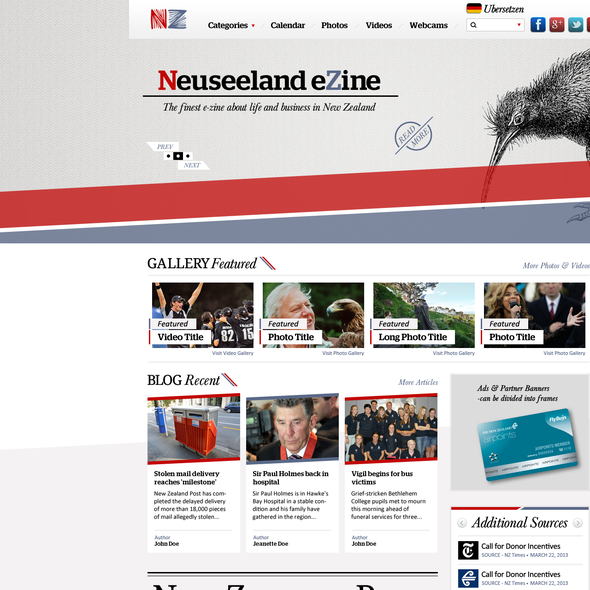Some Known Details About News Websites
Some Known Details About News Websites
Blog Article
The Greatest Guide To News Websites
Table of ContentsThe Single Strategy To Use For News WebsitesGet This Report about News WebsitesNews Websites - TruthsThe smart Trick of News Websites That Nobody is Talking AboutNews Websites Things To Know Before You Buy
It was down in the UK and Brazil but up some various other countries, such as Greece, Bulgaria, and Poland (News Websites). This year, for the first time, we asked regarding the different ways that individuals stay clear of the news and discovered that around half of avoiders (53%) were trying to do so in a broad-brush or periodic method as an example, by switching off the radio when the news began, or by scrolling past the information in social networkse.g. scrolling previous information, changing channels when news comes on. of avoiders check sources much less usually. e.g. restriction to specific times of day, turning off alerts, etc. of avoiders avoid some subjects. e.g. topics that reduce mood or increase anxiety. You said that you attempt to proactively avoid information.

I'm possibly selecting to read even more light-hearted stories than I utilized to at the minute. M, 51, UK Switching my back on information is the only way I feel I can cope sometimes. I need to consciously make the effort to avert for the benefit of my own psychological health and wellness.
What Does News Websites Mean?
Careful avoidance of Ukraine news was highest possible in a lot of the nations closest to the conflict, enhancing findings from our added survey in 2014, not long after the war had actually started. Our information may not suggest a lack of interest in Ukraine from neighboring countries yet rather a desire to take care of time or protect mental health and wellness from the really actual horrors of war.
Comparing Finland with a politically polarised nation such as the United States (see following graph) that is much less affected by the war, we locate a very different pattern of subject avoidance. In the USA, we find that customers are more probable to avoid subjects such as nationwide politics and social justice, where debates over issues such as sex, sexuality, and race have come to be extremely politicised.
American politics are rather harmful these days. I find occasionally that I have to detach from stories that my review here simply make me upset. F, 61, USA For some people, bitter and divisive political arguments are a factor to switch off news altogether, however for some political partisans, evasion is commonly regarding shutting out perspectives you do not wish to listen to.

Excitement About News Websites
Some are looking to make news much more available for hard-to-reach groups, expanding the news agenda, commissioning even more motivating or positive news, or embracing useful or remedies journalism that provide individuals a sense of hope or individual agency. In our study this year, we asked participants concerning their rate of interest in these different techniques.
This explains why tales like Ukraine or nationwide politics carry out well with information regulars but can at the same time transform less interested customers away (News Websites). Careful avoiders are less curious about all kinds of information than non-avoiders however in loved one terms they do seem to be more interested in positive or solutions-based news

Excitement About News Websites
2023). This might be true in the minute, yet over time it seems to be leaving many individuals vacant and less completely satisfied, which may be threatening our link with and trust in the information. Throughout markets, overall trust in news (40%) and rely on the resources people use themselves (46%) are down by a further 2 percentage points this year.
Certainly, via the rear-view mirror, the COVID-19 trust fund bump is plainly noticeable in the complying with chart, though the direction of traveling afterwards has actually been blended. In many cases (e.g. Finland), the count on boost has been maintained, while in others the upturn looks more like a blip in a story of continued long-lasting decline.
Some of the highest reported degrees of media criticism are located in nations with highest degree of distrust, such as Greece, the Philippines, the USA, France, and the UK. The lowest degrees of media objection are often in those with higher degrees of count on, such as Finland, Norway, Denmark, and Japan.
News Websites - An Overview
This year we asked respondents about their preferences for text, sound and video clip when eating information online. Typically, we discover that the bulk still prefer to read the information (57%), as opposed to watch (30%) or listen to it (13%), yet more youthful people (under-35s) are a lot more most likely to listen (17%) than older teams.
Behind the averages we discover significant and surprising country distinctions. In markets with a strong reading practice, such as Finland and the United Kingdom, around 8 in ten still like to review online information, yet in India and Thailand, around view four in ten (40%) state they choose to enjoy news online, and in the Philippines that percentage is over fifty percent (52%).
Report this page